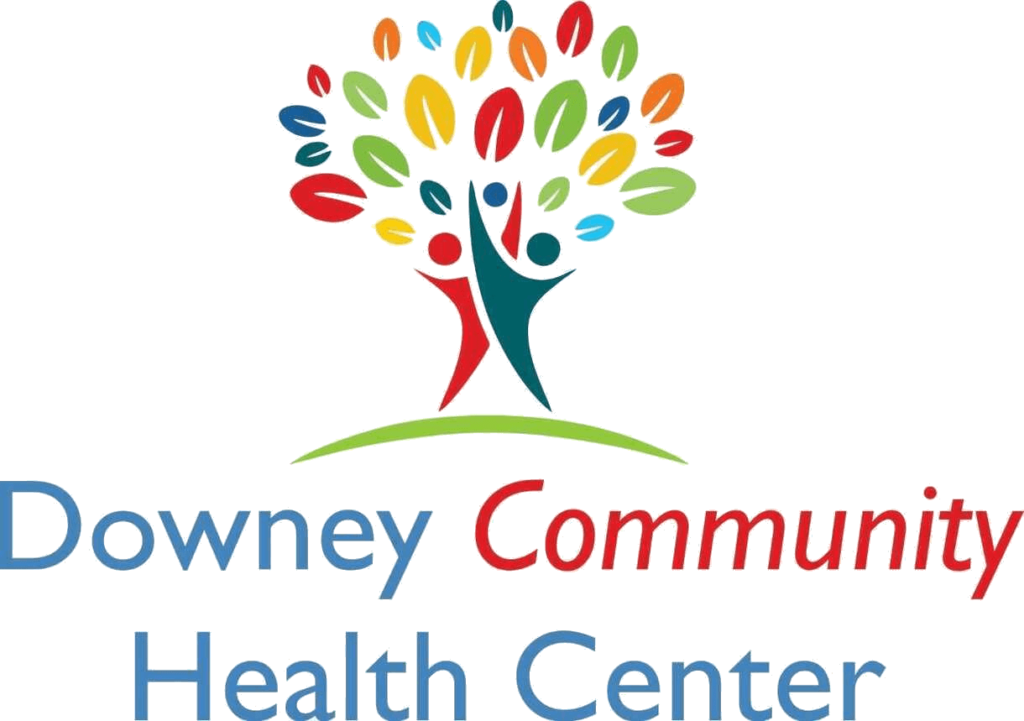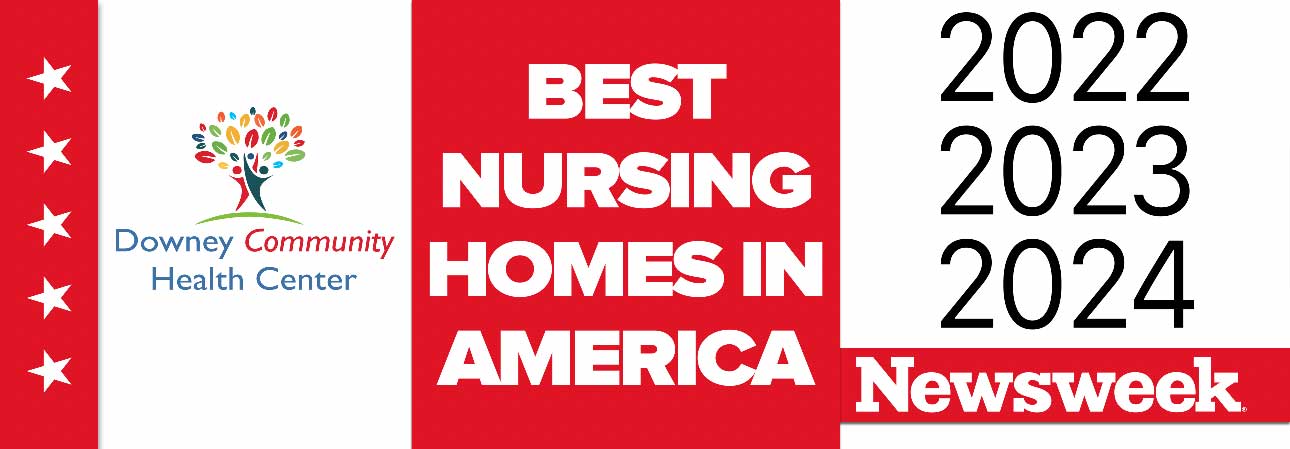At Downey Community Health Center, we understand the challenges that come with recognizing when it’s time to seek assistance for yourself or a loved one. Deciding to transition to an assisted living community can be a difficult and emotional process, but it’s essential to prioritize safety, well-being, and quality of life. An assisted living facility offers a range of benefits and services that can enhance independence and provide the necessary support for daily activities, healthcare, and social engagement.
Importance of Recognizing When It’s Time for Assistance
Recognizing the signs that indicate the need for assisted living is crucial. Delaying the decision can compromise safety and overall quality of life. By being proactive and acknowledging the need for assistance, individuals and families can ensure that the transition to assisted living is smooth and positive. In this post, we will explore the benefits of assisted living, discuss the 11 signs it might be time for assisted living, and provide guidance on how to navigate this important decision-making process.
The Benefits of Assisted Living
1. Enhancing Quality of Life
Assisted living facilities, such as Downey Community Health Center, are designed to prioritize residents’ quality of life. Our skilled nursing facility offers personalized care plans, ensuring that individuals receive the support they need while maintaining their independence.
From assistance with activities of daily living (ADLs) to medical management, our qualified and trained professionals are dedicated to enhancing the overall well-being of our residents. In addition, our vibrant social and recreational activities promote engagement and provide opportunities for residents to form new friendships and pursue hobbies.
2. Promoting Safety and Security
Safety is paramount in assisted living communities. As physical mobility and balance decline, the risk of accidents and falls increases. At Downey Community Health Center, we provide a safe and secure environment with features such as 24/7 staff availability. Our compassionate team members are trained to identify potential risks and take proactive measures to prevent accidents and ensure the safety of our residents.
3. Access to Professional Care and Support
One of the significant advantages of assisted living is access to professional care and support. Our team of skilled nurses and caregivers is available round the clock to provide medical assistance, administer medications, and monitor health conditions.
In partnership with healthcare professionals, we offer comprehensive care coordination, ensuring that residents receive timely medical attention and follow-up appointments. This collaborative approach provides peace of mind to residents and their families, knowing that their health needs are being met.
Assessing the Need for Assisted Living
Understanding the signs that indicate the need for senior living is essential in making an informed decision. It involves evaluating various aspects of an individual’s physical health, cognitive function, emotional well-being, and overall safety. By carefully assessing these factors, individuals and their families can determine if assisted living is the right choice. Let’s explore some key considerations in this assessment process.
Evaluating Physical Health and Limitations
Declining physical mobility and balance can significantly impact an individual’s ability to live independently. If you or your loved one experiences difficulties in walking, getting up from a chair, or navigating stairs, it may be time to consider assisted living. Additionally, chronic health conditions, such as arthritis or heart disease, can require ongoing medical management and support, which assisted living facilities are well-equipped to provide.
Considering Cognitive Function and Memory
Cognitive decline can manifest in various ways, including memory loss, confusion, and difficulty with problem-solving and decision-making. If you notice persistent memory lapses, forgetfulness, or an increasing inability to perform everyday tasks or have poor hygiene, assisted living may offer the necessary support. Professional care providers at the best-skilled nursing facilities can assist with medication management, cognitive exercises, and memory enhancement techniques to promote cognitive well-being.
Assessing Emotional Well-being
Emotional well-being is equally important when considering assisted living. Loneliness, social isolation, and persistent feelings of sadness or depression can have a profound impact on an individual’s overall health and quality of life. If you or your loved one is experiencing a lack of social connections, decreased interest in previously enjoyed activities, or signs of depression, assisted living can provide a supportive community and opportunities for engagement.
Signs Indicating the Need for Assisted Living
1. Declining Physical Mobility and Balance
A noticeable decline in physical mobility, difficulty performing daily activities, and increased reliance on mobility aids are all signs that assisted living may be beneficial. Assisted living facilities like Downey Community Health Center offer accessible environments and personalized care plans to assist residents in maintaining their mobility and independence such as occupational and physical therapy.
2. Frequent Falls and Accidents
Frequent falls or accidents can be alarming and indicate the need for additional support. Assisted living facilities have safety measures in place, such as grab bars, non-slip flooring, and trained staff who can promptly respond to emergencies and minimize the risk of falls.
3. Inability to Manage Medications
Medication management can become increasingly challenging with age, especially for individuals with complex medication regimens. If you or your loved one is struggling to take medications as prescribed, an assisted living facility can ensure that medications are administered correctly and on schedule, reducing the risk of medication errors and adverse reactions.
4. Neglected Personal Hygiene and Grooming
Personal hygiene and grooming habits can decline with age or due to physical limitations. If you or your loved one is experiencing poor hygiene, such as bathing, dressing, or grooming, assisted living can provide the necessary assistance and ensure proper self-care.
5. Poor Nutrition and Weight Loss
Malnutrition and unintended weight loss can be indicators of underlying health issues, poor eating habits, or difficulty managing meal preparation. Local assisted living communities offer well-balanced meals tailored to residents’ dietary needs and can provide the necessary support to ensure proper nutrition and hydration.
Signs of Cognitive Decline
1. Memory Loss and Confusion
Memory loss that affects daily functioning, such as forgetting to turn off appliances or getting lost in familiar surroundings, may indicate the need for assisted living. Trained caregivers can provide memory-enhancing activities and support to individuals experiencing cognitive decline, including stroke rehabilitation therapy.
2. Difficulty with Activities of Daily Living (ADLs)
Struggling with basic ADLs, such as dressing, bathing, or preparing meals, can be a sign of cognitive decline. Assisted living facilities offer personalized assistance with these activities, promoting independence while ensuring safety.
3. Wandering and Getting Lost
Wandering and getting lost can pose significant risks to older adults with cognitive decline. Assisted living communities provide a secure environment with trained staff who can prevent wandering and promptly address any elopement risks.
4. Increased Social Isolation
Social isolation can worsen cognitive decline and contribute to depression and anxiety. Assisted living facilities offer a community setting and social services where residents can engage in social activities, fostering meaningful connections and reducing the sense of isolation.
Emotional and Mental Health Considerations
1. Persistent Feelings of Sadness or Depression
Persistent feelings of sadness, hopelessness, or depression should not be ignored. Assisted living communities provide a supportive environment with opportunities for socialization and engagement, helping combat feelings of loneliness and depression.
2. Anxiety and Chronic Stress
Chronic stress and anxiety can have a detrimental impact on the well-being of your family member. Assisted living facilities offer a range of services, including stress management programs, therapy, and medication management, to support residents’ emotional and mental health.
Communication with Family and Loved Ones
Open and honest communication between family members is vital when considering assisted living. It is crucial to involve all relevant parties, including the individual who may require assistance, in the decision-making process. Here are some key points to consider when discussing the transition to assisted living:
The Importance of Open and Honest Discussions
Approaching the subject of assisted living requires sensitivity and open dialogue. Create a safe space where everyone feels comfortable expressing their concerns, fears, and desires. By openly discussing the benefits and addressing any reservations, you can collectively make an informed decision that best meets the individual’s needs.
Addressing Resistance and Fears
It is common for individuals to resist the idea of moving to assisted living due to fears of losing independence or the stigma associated with needing assistance. Address these concerns empathetically and highlight the opportunities for increased social engagement, professional care, and improved quality of life that assisted living offers. Share success stories of others who have transitioned to assisted living and experienced positive outcomes.
When to Involve Healthcare Professionals
Seeking medical advice and assessments can provide valuable insights into an individual’s health condition and help determine the most appropriate level of care. Healthcare professionals, such as geriatricians, can assess physical and cognitive health, provide guidance, and make recommendations regarding the best nursing home and assisted living facility for your loved one.
Consulting with Geriatric Care Managers
Geriatric care managers are experts in aging and can provide comprehensive assessments, develop care plans, and offer guidance throughout the decision-making process. Their expertise can help navigate the complexities of assisted living and ensure that the chosen facility aligns with the individual’s needs and preferences.
Making the Transition to Assisted Living
Choosing the Right Assisted Living Facility
Selecting the right assisted living facility is crucial for a successful transition. Consider factors such as location, amenities, staff qualifications, and the overall atmosphere of the facility. At Downey Community Health Center, we offer a skilled nursing facility for those who need short-term recuperation and rehabilitation or skilled care. Our compassionate and dedicated staff provides 24/7 care and assistance, ensuring the comfort and well-being of our residents.
Preparing for the Move and Settling In
Moving to assisted living requires careful planning and preparation. Start by decluttering and downsizing possessions to ensure a smooth transition. Communicate with the facility staff to understand what personal items can be brought to make the new living space feel familiar and comforting. Engage family members and friends in the moving process to provide emotional support and help create a sense of belonging in the new environment.
Coping with the Emotional Impact
Dealing with Grief and Loss
The decision to transition to assisted living can evoke feelings of grief and loss. Acknowledge and validate these emotions, understanding that change can be challenging. Encourage family members and loved ones to express their feelings and seek support from each other, as well as from health professionals and support groups.
Supporting Emotional Well-being
Assisted living facilities are committed to supporting the emotional well-being of their residents. They provide various resources such as counseling services, support groups, and engaging activities to promote a positive and fulfilling lifestyle. Encourage residents to participate in social events, make new friends, and explore new hobbies to maintain a sense of purpose and joy.
The Role of Family and Caregivers
Maintaining Relationships and Connections
Assisted living does not replace the role of family and loved ones; it enhances it. Stay involved in your loved one’s life by visiting regularly, engaging in meaningful conversations, and participating in facility activities together. Your presence and support can make a significant difference in their adjustment to assisted living.
Partnering with Assisted Living Staff
Collaborating with the nursing home or skilled nursing facility staff is essential to ensure the well-being of your loved one. Communicate any concerns, preferences, or changes in their chronic conditions promptly. By establishing a strong partnership with the staff, you can actively contribute to the provision of personalized care and support.
Financial Considerations and Resources
Understanding the Costs of Assisted Living
Finances play a significant role in the decision-making process. Assisted living costs can vary based on factors such as location, level of care required, and amenities provided. Research and understand the cost structure of assisted living facilities, including monthly fees, additional services, and any potential fee increases.
Exploring Financial Assistance Options
Financial assistance options may be available to help offset the cost of assisted living. Research government programs, long-term care insurance, and veterans’ benefits to determine if you or your loved one are eligible for financial support. Consult with financial advisors or elder law attorneys who can guide you through the process of exploring available resources.
Legal and Practical Matters
Power of Attorney and Advance Directives
Establishing power of attorney and advance directives is crucial to ensure that an individual’s wishes are respected and that their affairs are managed appropriately. Work with an attorney specializing in elder law to draft these documents and ensure they are in line with state laws and regulations.
Downsizing and Managing Possessions
Downsizing and managing possessions can be an overwhelming task. Start early and involve your loved one in the process, allowing them to make decisions about which items to keep and which to let go. Consider donating or selling unneeded possessions to minimize the emotional burden and simplify the move to assisted living.
Assisted Living Services and Amenities
24/7 Care and Assistance
Assisted living facilities provide around-the-clock care and assistance to residents. Trained professionals are available to help with activities of daily living, medication management, and any emerging health needs. This comprehensive support ensures that residents receive the care they require when they need it.
Social and Recreational Activities
Assisted living facilities offer a vibrant social environment with a range of activities tailored to residents’ interests and abilities. From group outings and exercise classes to arts and crafts workshops, there are ample opportunities for engagement, fostering friendships, and pursuing hobbies.
Healthcare Support and Coordination
Access to healthcare support is a key benefit of assisted living. Facilities like Downey Community Health Center have partnerships with healthcare professionals, enabling residents to receive comprehensive care coordination, regular check-ups, and specialized medical services. This collaborative approach ensures that residents’ healthcare needs are met efficiently and effectively.
Addressing Common Concerns and Misconceptions
Debunking Myths About Assisted Living
Assisted living is often misunderstood, leading to common concerns and misconceptions. It’s essential to debunk these myths and provide accurate information. Assisted living facilities prioritize residents’ independence, privacy, and dignity while providing the necessary support for their well-being.
Ensuring Privacy and Independence
Many individuals fear that transitioning to assisted living means giving up their privacy and independence. Assisted living facilities, like Downey Community Health Center, respect residents’ autonomy and offer personalized care plans that allow individuals to maintain as much independence as possible while ensuring their safety and well-being.
Final Thoughts
Knowing when it’s time to consider assisted living is a crucial step in ensuring the safety, well-being, and quality of life for yourself or your loved one. By assessing physical health, cognitive function, emotional well-being, and overall safety, you can make an informed decision that prioritizes the individual’s needs.
Assisted living offers a range of benefits, including enhanced quality of life, increased safety and security, and access to professional care and support. By embracing the support and services provided by assisted living facilities, individuals can maintain their independence while receiving the necessary assistance for daily activities and healthcare needs.
At Downey Community Health Center, we understand the significance of this decision and are committed to providing compassionate care and support. Our skilled nursing facility offers short-term recuperation and rehabilitation as well as skilled care. With our dedicated staff and comprehensive services, we strive to create an engaging and supportive environment for our residents.
Contact us today to learn more about our assisted living services and how we can assist you or your loved one on this journey.









